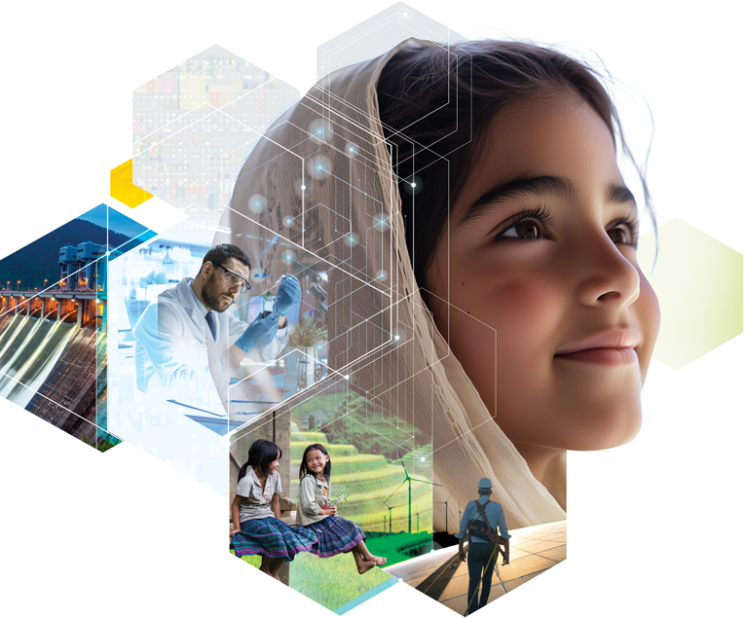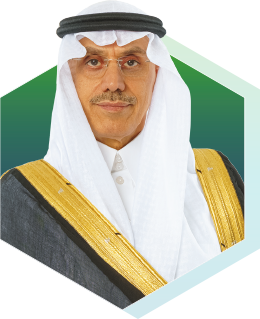CORPORATE PROFILE OF IsDB
ESTABLISHMENT
The Islamic Development Bank (IsDB) is a Multilateral Development Bank established pursuant to Articles of Agreement signed in the city of Jeddah, Kingdom of Saudi Arabia, on 21 Rajab 1394H, corresponding to 12 August 1974. The Inaugural Meeting of the Board of Governors took place in Rajab 1395H (July 1975), and subsequently IsDB formally commenced operations on 15 Shawwal 1395H (20 October 1975).
VISION
The Islamic Development Bank strives to become a world-class development bank, inspired by Islamic principles, that helps to significantly transform the landscape of comprehensive human development in the Muslim world and to restore its dignity.
MISSION
To promote comprehensive human development, with a focus on the priority areas of alleviating poverty, improving health, promoting education, improving governance, and bringing prosperity to the people.
MEMBERSHIP
The IsDB has 57 member countries across various regions. The prime conditions for membership are that the prospective country should be a member of the Organisation of Islamic Cooperation (OIC), that it pays the first instalment of its minimum subscription to the Capital Stock of the IsDB, and that it accepts any terms and conditions that may be decided upon by the Board of Governors.
ISLAMIC DEVELOPMENT BANK GROUP
The IsDB Group comprises five entities: the Islamic Development Bank (IsDB), the Islamic Development Bank Institute (IsDBI), the Islamic Corporation for the Development of the Private Sector (ICD), the Islamic Corporation for the Insurance of Investment and Export Credit (ICIEC), and the International Islamic Trade Finance Corporation (ITFC). In addition, there is a dedicated poverty alleviation arm – the Islamic Solidarity Fund for Development (ISFD).
FINANCIAL YEAR
The IsDB’s financial year used to be the lunar Hijra Year (H). However, on 1 January 2016, the financial year was changed to the Solar Hijra year starting from 11th of Capricorn (corresponding to 1 January) and ending on 10th Capricorn (corresponding to 31 December of every year).
CAPITAL
At its 45th Annual Meeting, the IsDB’s Board of Governors approved the 6th General Capital Increase of ID5.5 billion. As at the end of 2024, the subscribed capital of the IsDB stood at ID58.7 billion.
HEADQUARTER AND REGIONAL HUBS
The IsDB is headquartered in Jeddah, the Kingdom of Saudi Arabia, and has 10 Regional Hubs in Abuja, Nigeria; Almaty, Kazakhstan; Ankara, Türkiye; Cairo, Egypt; Dakar, Senegal; Dhaka, Bangladesh; Jakarta, Indonesia; Kampala, Uganda; Paramaribo, Suriname; and Rabat, Morocco, with a Centre of Excellence in Kuala Lumpur, Malaysia.
ACCOUNTING UNIT
The accounting unit of the IsDB is the Islamic Dinar (ID), which is equivalent to one Special Drawing Right (SDR) of the International Monetary Fund.
LANGUAGE
The official language of the IsDB is Arabic, but English and French are also used as working languages.
MESSAGE FROM THE PRESIDENT
BOARD OF EXECUTIVE DIRECTORS
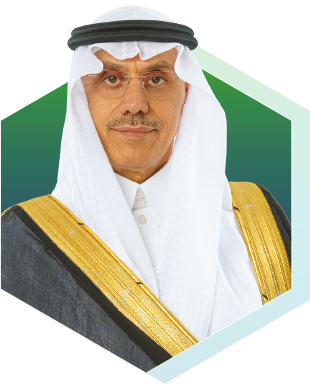
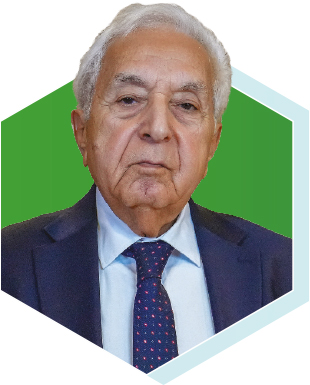
Representing: Libya 2 / 20
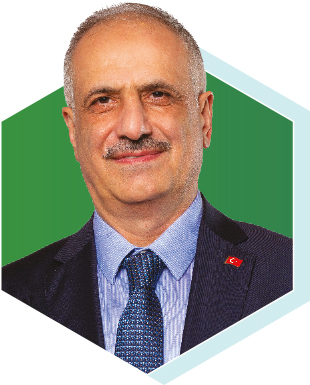
Representing: Türkiye 3 / 20
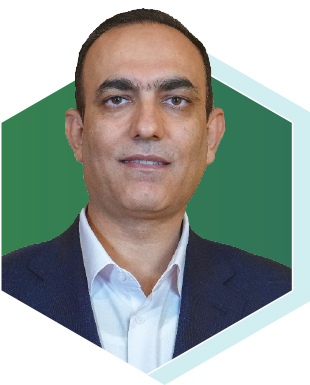
Representing: Iran 4 / 20
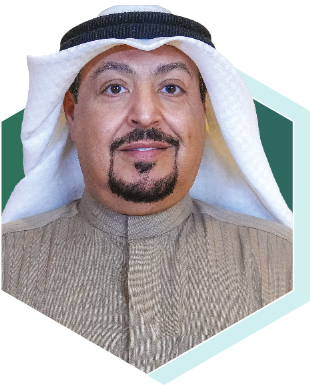
Representing: Kuwait 5 / 20
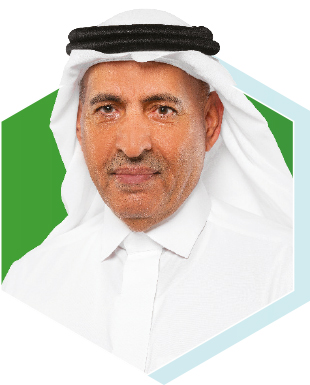
Representing: Saudi Arabia 6 / 20
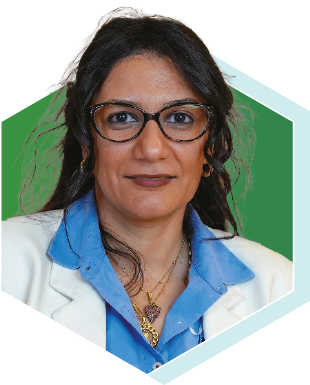
Representing: Egypt 7 / 20
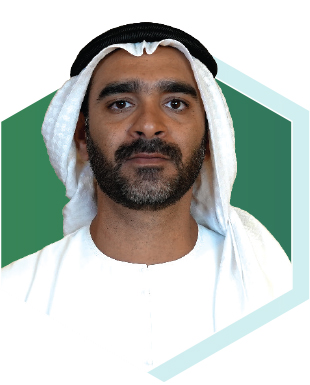
Representing: United Arab Emirates 8 / 20
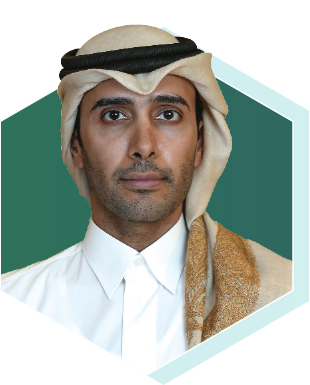
Representing: Qatar 9 / 20
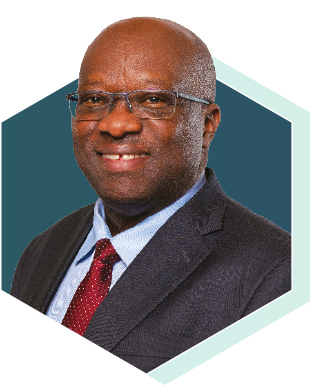
Representing: Nigeria 10 / 20
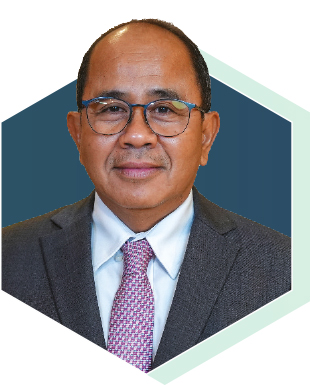
Representing: Indonesia 11 / 20
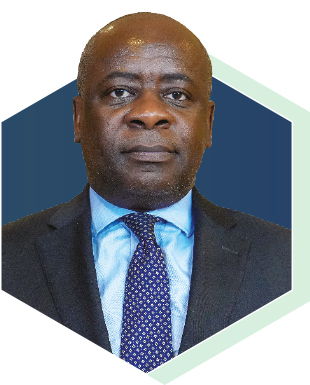
Representing: Chad, Comoros, Djibouti, Gabon, Mozambique, Somalia, Uganda 12 / 20
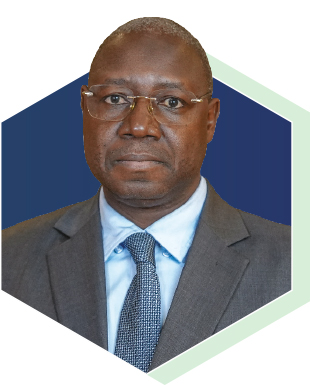
Representing: Burkina Faso, Gambia, Mali, Niger, Senegal, Togo 13 / 20
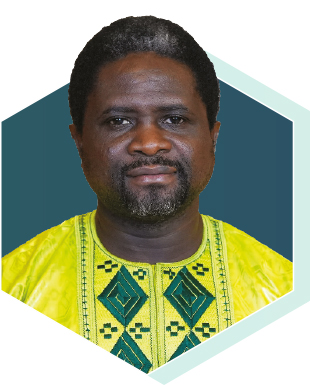
Representing: Benin, Cameroon, Côte D’ivoire, Guinea, Guinea Bissau, Sierra Leone 14 / 20

Representing: Algeria, Mauritania, Morocco, Tunisia 15 / 20
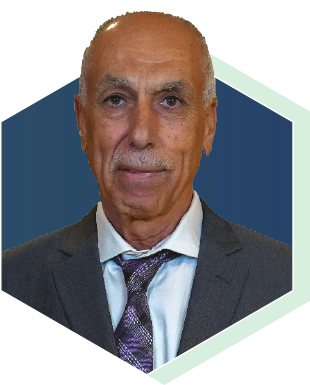
Representing: Iraq, Jordan, Lebanon, Palestine, Syria 16 / 20
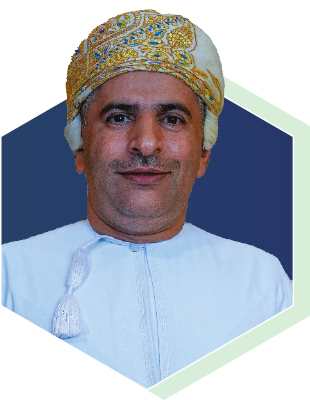
Representing: Bahrain, Oman, Sudan, Yemen 17 / 20
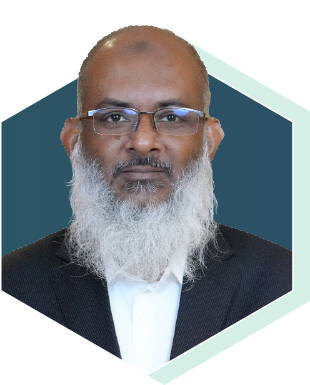
Representing: Afghanistan, Bangladesh, Maldives, Pakistan 18 / 20
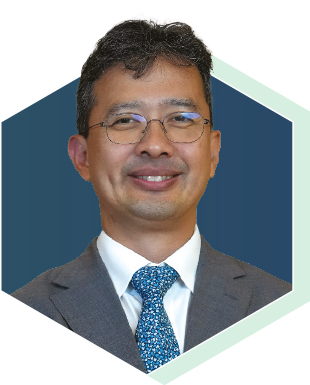
Representing: Brunei Darussalam, Guyana, Malaysia, Suriname 19 / 20
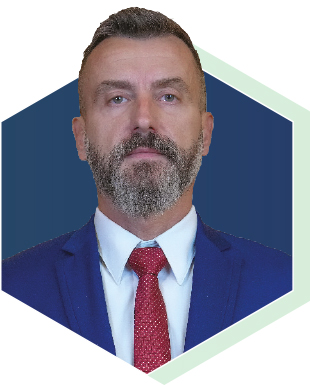
Representing: Albania, Azerbaijan, Kazakhstan,
Kyrgyz Republic, Turkmenistan, Tajikistan, Uzbekistan 20 / 20
EXECUTIVE SUMMARY: A YEAR IN REVIEW
ADVANCING HUMAN DEVELOPMENT
In 2024, IsDB achieved significant progress in advancing health, education, and nutrition initiatives, aligning with SDG 3 (Good Health and Well-being), SDG 4 (Quality Education), and SDG 2 (Zero Hunger).
BUILDING RESILIENCE AND SUSTAINABILITY
The Bank exceeded its climate finance target of 35% for 2025, achieving
46%
of total financial commitments in 2024, amounting to approximately
US$2.4 billion.
LEVERAGING PARTNERSHIPS
Financing partners contributed
US$5.5 billion
to IsDB-financed projects, enhancing project efficiency through shared financial and administrative responsibilities.
REINVIGORATING INSTITUTIONAL GOVERNANCE
The Bank’s financial performance for 2024 demonstrates a strong growth trajectory, with net income reaching
ID388 million, marking a
22.5%
increase from 2023.
2024 AT A GLANCE
THOUGHT LEADERSHIP IN ISLAMIC ECONOMICS AND FINANCE

In 2024, the Islamic Development Bank Institute approved
24
new technical assistance projects valued at
US$4.17 million
for seven countries and six partner organisations. IsDBI also completed 10 grants projects worth a cumulative
US$1.0 million.
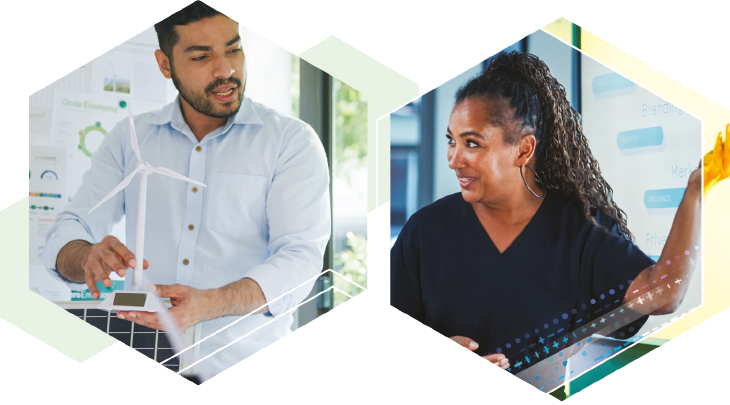
IsDBI organised
16 training programmes
in 2024, benefiting around 500 professionals. Topics included capital markets, climate change, liquidity management, Shari’ah governance, digital technologies, and Islamic social finance.
SOUTH-SOUTH DEVELOPMENT SOLUTIONS
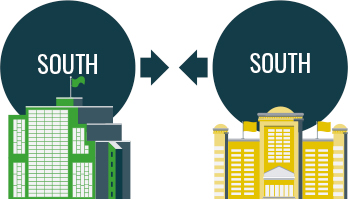
In 2024, a total of
22
Technical Cooperation Programme (TCP)
operations amounting to
US$713,000
were approved.
In 2024, a
US$4.1 million
grant was allocated for
Reverse Linkage projects.
6
Reverse Linkage interventions
were mainstreamed in IsDB’s ordinary operations, benefitting Azerbaijan, Cameroon, Jordan, Maldives, Tajikistan and Tunisia in areas such as agriculture, education, water, MSMEs and rural development.
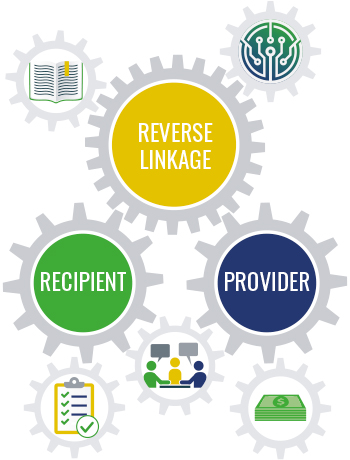
ADVANCING INCLUSIVE, GREEN, RESILIENT, AND SUSTAINABLE DEVELOPMENT

In 2024, IsDB approved several groundbreaking projects totalling over
US$5.26 million
through the Economic Empowerment Knowledge Solutions (EEKS) programme to tackle poverty and foster resilience.
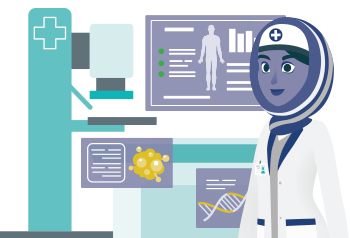
Healthcare investments totalled
US$221.2 million,
and included the Health System Strengthening Project in Mozambique (US$20.4 million) and the Improving Quality of Oncology Services in Turkmenistan (US$158.9 million).
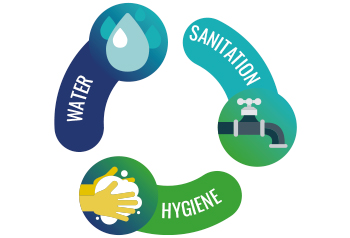
WASH
(water, sanitation and hygiene) and Islamic finance projects in Bangladesh and Indonesia worth more than
US$ 6.5 million
enhanced women’s access to financing, capacity-building, and essential resources.
In 2024, the Bank awarded scholarships to
474 students from
57 countries.
As of December 2024,
14,044 students
had completed their studies and research in development-related fields and were actively contributing to their countries’ progress through their knowledge and expertise.

The IsDB’s Communities Outreach Programme (COP), established in 1981, has approved a total of
1,877 projects,
amounting to
US$910.27 million.
In 2024, the COP approved 8 new projects with a total funding of
US$2.27 million.
The Skills, Training, and Education Programme (STEP) has mobilised
US$62.0 million
to support 12 active projects across Jordan, Lebanon, Türkiye, and Yemen, directly benefiting over 5,000 individuals and 600 small and medium enterprises (SMEs).
In response to escalating crises, IsDB allocated
US$4.0 million
for humanitarian aid in Gaza and for Sudanese refugees in Chad, Egypt, and Libya.
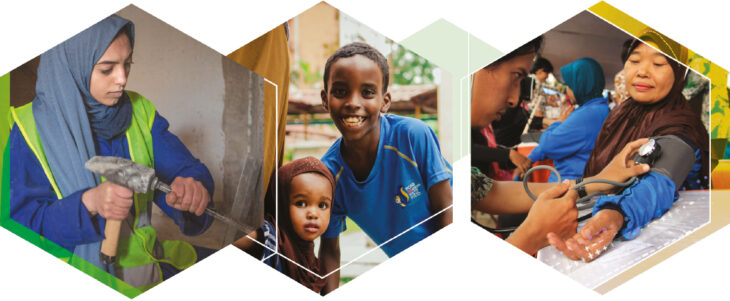
Through the Tadamon programme, around
670,000 people
in hard-to-reach communities in 34 MCs have gained access to basic medical services and over 3,000 deprived households have gained access to income generating activities.
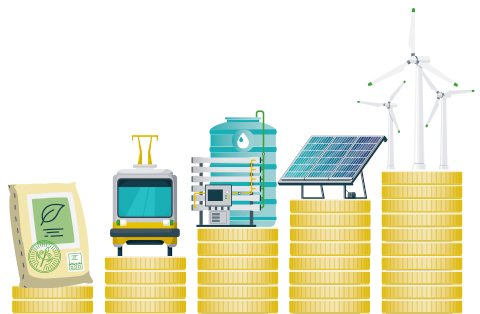
To date, IsDB has successfully issued over
US$5.0 billion
in both green and sustainable Sukuk, which have been directed towards climate-friendly initiatives and social development projects within its member countries
The Bank exceeded its climate finance target of 35% for 2025, achieving 46% of total financial commitments in 2024, amounting to approximately
US$2.4 Billion.
CLIMATE FINANCE
INFRASTRUCTURE

In 2024, IsDB approved 12 agriculture and rural development projects with a total cost of
US$745 million.

In 2024 the Bank approved 12 transport sector projects totalling
US$2.71 billion,
with IsDB financing of US$1.50 billion (55.2%) and co-financing of US$1.21 billion (44.8%).

In 2024, IsDB approved 9 energy projects worth
US$923.90 million.
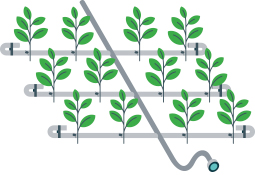
In 2024 IsDB approved
US$2.1 billion
in water sector financing.
IN NUMBERS
IsDB GROUP NET APPROVALS IN 2024
REGIONAL DISTRIBUTION OF IsDB GROUP NET APPROVALS, 2024
INSIDE THE REPORT
Chapter 1
IsDB GROUP ACTIVITIES
This chapter highlights the key achievements of the IsDB Group, which is made up of the Islamic Development Bank (IsDB), the Islamic Development Bank Institute (IsDBI), the Islamic Corporation for the Insurance of Investment and Export Credit (ICIEC), the Islamic Corporation for the Development of the Private Sector (ICD), and the International Islamic Trade Finance Corporation (ITFC), as well as the Islamic Solidarity Fund for Development (ISFD). While the IsDB is the core development bank, these institutions deliver a variety of financial solutions, trade and investment facilitation, and private sector support to our member countries.
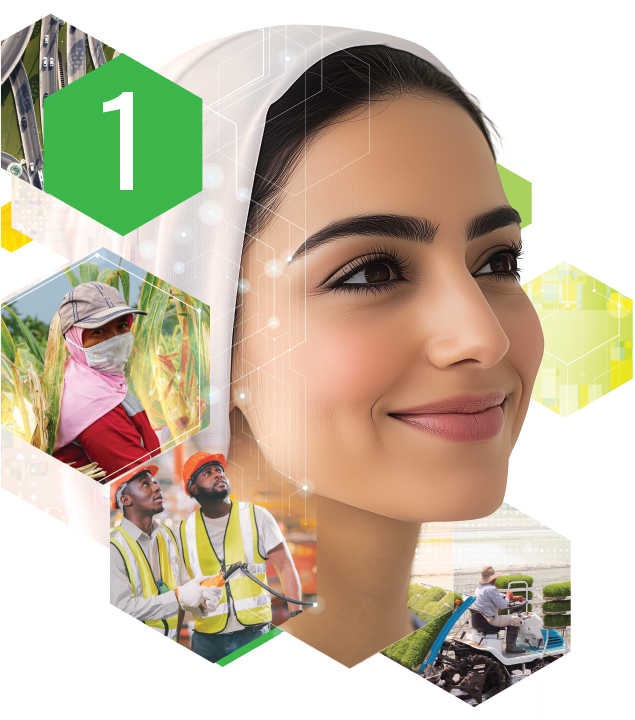
Chapter 2
ADVANCING INCLUSIVE, GREEN, RESILIENT,
AND SUSTAINABLE DEVELOPMENT
In 2024, the Islamic Development Bank remained committed to ensuring no one is left behind in its member countries’ development. Prioritising education, infrastructure, health, environment, and gender equality, the Bank continues to drive inclusive, sustainable progress. Its initiatives align with the SDGs, fostering resilience and long-term growth across diverse communities.
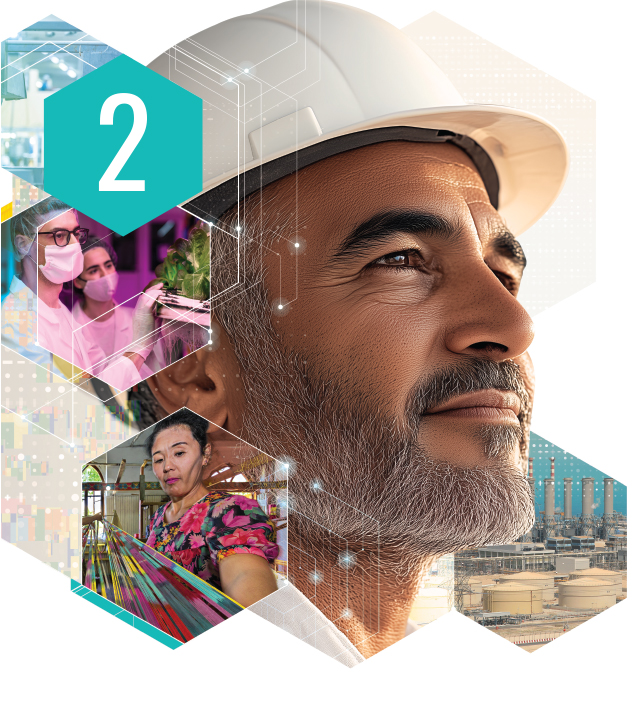
Chapter 3
REINFORCING INSTITUTIONAL EFFECTIVENESS
IsDB’s ability to deliver impact and operate effectively is rooted in robust internal structures and processes, including corporate governance, risk management, auditing, compliance, and IT. In 2024, we remained diligent in upholding the integrity and efficiency of these institutional systems, ensuring they continue to support our mission and operational excellence.
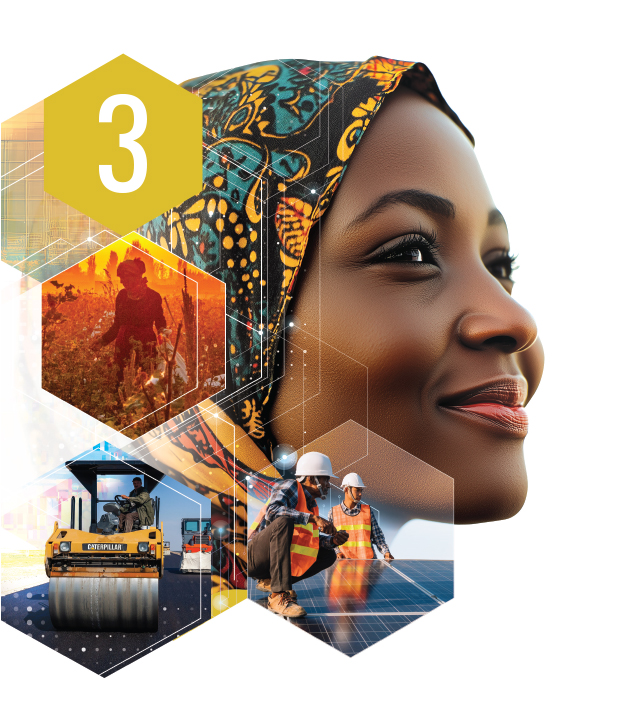
WHERE WE WORK
Middle East and North Africa
- Algeria
- Bahrain
- Egypt
- Iraq
- Jordan
- Kuwait
- Lebanon
- Libya
- Mauritania
- Morocco
- Oman
- Palestine
- Qatar
- Saudi Arabia
- Sudan
- Syria
- Tunisia
- UAE
- Yemen
Asia, Latin America & Europe
- Afghanistan
- Albania
- Azerbaijan
- Bangladesh
- Brunei
- Guyana
- Indonesia
- Iran
- Kazakhstan
- Kyrgyzstan
- Malaysia
- Maldives
- Pakistan
- Suriname
- Tajikistan
- Turkiye
- Turkmenistan
- Uzbekistan
Sub-Saharan Africa (SSA)
- Benin
- Burkina Faso
- Cameroon
- Chad
- Comoros
- Côte d’Ivoire
- Djibouti
- Gabon
- Gambia
- Guinea
- Guinea-Bissau
- Mali
- Mozambique
- Niger
- Nigeria
- Senegal
- Sierra Leone
- Somalia
- Togo
- Uganda
The present membership of the Bank consists of
57 countries.
Beyond our countries we also provide support to Muslim communities in non-member countries, including those afflicted by conflict and natural disasters. Altogether, our work touches the lives of
1 in 5
of the world’s population.
